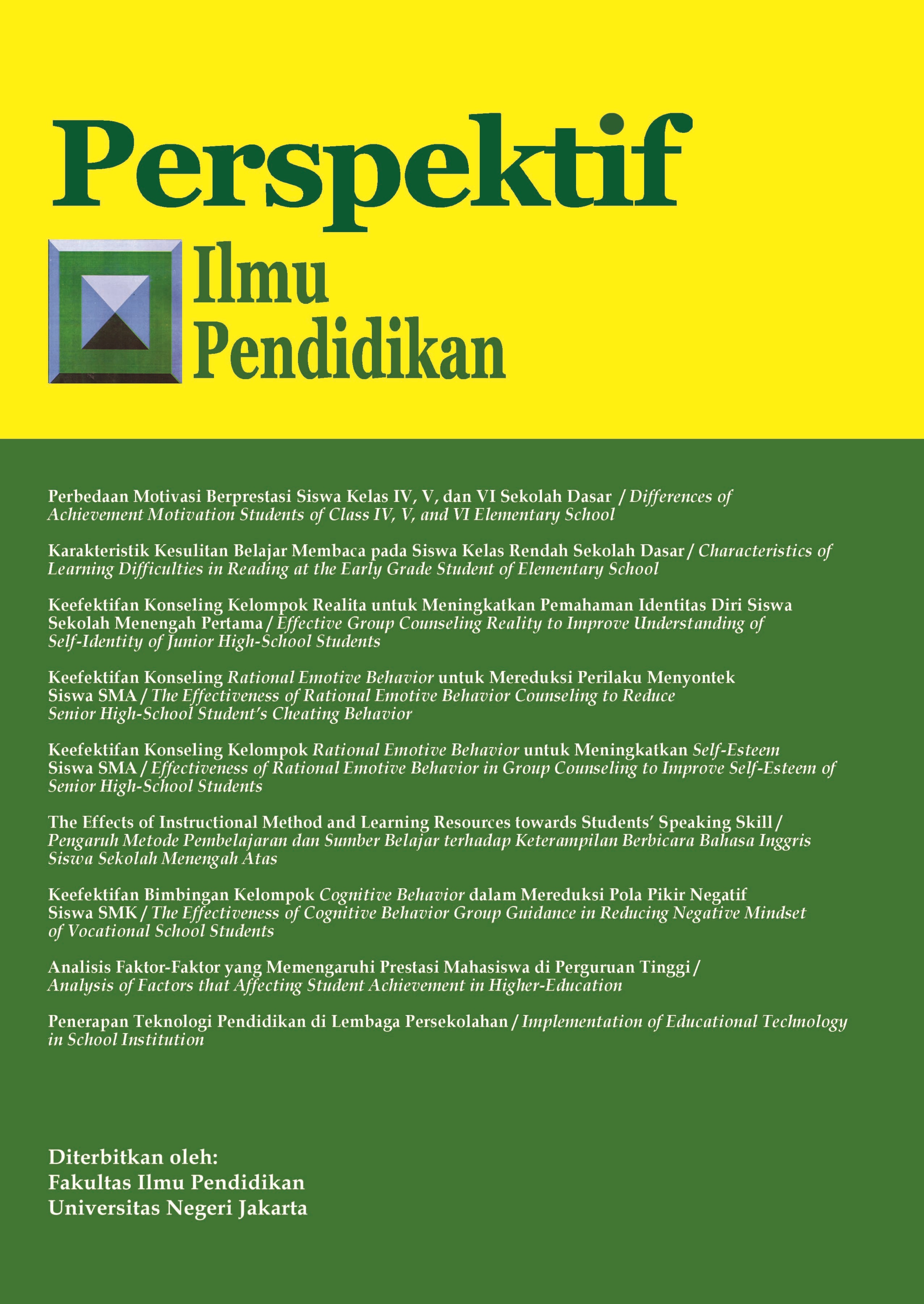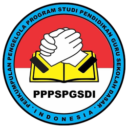PERBEDAAN MOTIVASI BERPRESTASI SISWA KELAS IV, V, DAN VI SEKOLAH DASAR
DOI:
https://doi.org/10.21009/PIP.322.1Keywords:
motivation, achievement motivation, elementary school studentAbstract
One of the successes of students in education is shown by their academic achievements. This is what students do not have to always improve their achievement motivation. Achievement motivation possessed by someone ideally always progresses so that it will accelerate what is desired. The purpose of the study was to find out the difference in the average achievement motivation of grade IV, V, and VI students of Sekolah Dasar Negeri Sumber Rahayu OKU Timur in 2017. The research design used a quantitative approach. Data collection uses observation and questionnaire guidelines to obtain primary and secondary data. Data analysis techniques using independent sample t-test and ANOVA (One-Way ANOVA). This research was conducted on November 13, 2017 until January 06, 2018 in Sumber Rahayu OKU Timur Elementary School. The results of the study found that if there were differences in the average score of achievement motivation for grade IV, V, and VI students of Sekolah Dasar Negeri Sumber Rahayu OKU Timur in 2017. For that reason, teachers should pay more attention to their interests and talents so that students can continue to improve their motivation to continue achieving, more knowing how to make learning in class more interesting and fun so students are more motivated to take part in learning.
References
Dimyati & Mudjiono. (2009). Belajar dan pembelajaran. Jakarta: PT. Rineka Cipta.
Djamarah, S. (2002). Prestasi belajar dan kompetensi guru. Jakarta: Usaha Nasional.
Hamzah, B.U. (2008). Teori motivasi dan pengukurannya. Jakarta: Bumi Aksara.
Hawadi, R. A. (2001). Psikologi perkembangan anak: Mengenal sifat, bakat, dan kemampuan anak. Jakarta: PT Grasindo.
Moore, L. L., Grabsch, D. K., & Rotter, C. (2010). Using achievement motivation theory to explain student participation in a residential leadership learning community. Journal of Leadership Education, 9(2), 22-34. http://www.journalofleadershiped.org/index.php/issues/vol-9-iss-2/157-using-achievement-motivation-
theory-to-explain-student-participation-in-a-residential-leadership-learning-community
Mulyasa. E. (2008). Standar kompetensi dan sertifikasi guru. Bandung: Rosdakarya.
Setyowati, L. (2016). Analisis motivasi berprestasi siswa kelas V SD Negeri Slerok 4 Kota Tegal. Tesis. Semarang: Universitas Negeri Semarang.
Simanjuntak, W. (2013). Faktor-faktor yang mempengaruhi prestasi belajar. Kompasiana. Diakses dari http://www.kompasiana.com/wantisimanjuntak/faktor-faktor-yang-mempengaruhi-prestasi-belajar_552e34eb6ea 83482208b456d pada tanggal 2 Mei 2018.
Singh, P., & Singh, N. (2013). Difficulties in emotion regulation: A barrier to academic motivation and performance. Journal of the Indian Academy of Applied Psychology, 39(2), 289-297. http://jiaap.org/Sample.aspx?Sub=JIAAP%20July%202013
Sugiyono. (2013). Metodologi penelitian pendidikan. Bandung: Alfabeta.
Sujarwo. (2011). Pengaruh strategi pembelajaran inkuiri terbimbing dan ekspositori terhadap hasil belajar sosiologi pada siswa SMA yang memiliki tingkat motivasi berprestasi dan kreativitas berbeda. Disertasi tidak diterbitkan. Malang: Program Pascasarjana Universitas Negeri Malang.
Syamsuddin & Nandang. B. (2003). Profesi keguruan 2. Jakarta: PT. Rineka Cipta.
Taiyeb, A. M., Bahri, A., & Razak, R. B. (2012). Analisis motivasi berprestasi siswa SMAN 8 Makassar dalam belajar biologi. Jurnal Bionature, 13(2), 77-83. http://ojs.unm.ac.id/bionature/article/view/1430
Downloads
Published
How to Cite
Issue
Section
License
Authors who publish with this Journal agree to the following terms:
- Author retain copyright and grant the journal right of first publication with the work simultaneously licensed under a creative commons attribution licensethat allow others to share the work within an acknowledgement of the work’s authorship and initial publication of this journal.
- Authors are able to enter into separate, additional contractual arrangementfor the non-exclusive distribution of the journal’s published version of the work (e.g. acknowledgement of its initial publication in this journal).
- Authors are permitted and encouraged to post their work online(e.g. in institutional repositories or on their websites) prior to and during the submission process, as it can lead to productive exchanges, as well as earlier and greater citation of published works.
-
Users/public use of this website will be licensed to CC BY-NC-SA Creative Commons Attribution-NonCommercial-ShareAlike 4.0 International License












